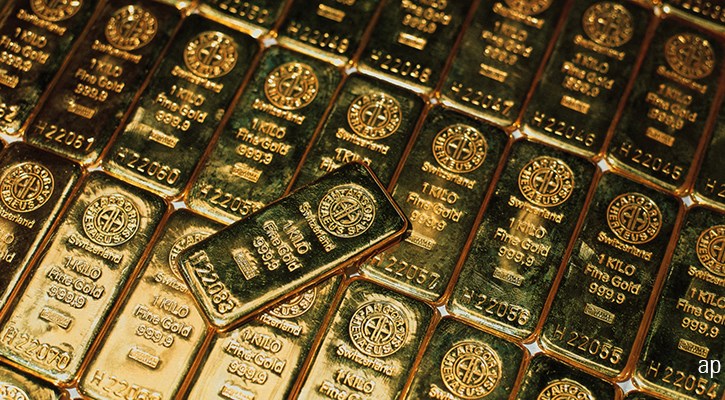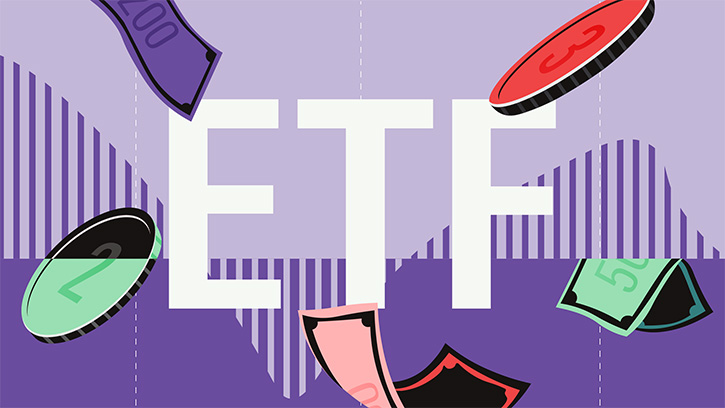
Traditionally, a strong dollar and rising bond yields are not good for gold, which doesn't have a yield of its own. Yet, the spot price of gold has been setting new all-time highs in recent months. On August 11, an ounce hit its latest record price of $2,475.72, up 20% from $2,063.75 at the end of 2023.
This boost was not caused by the financial markets. Precisely because of macroeconomic and monetary dynamics, investor demand for gold has remained weak over the past few years. According to Morningstar data, exchange-traded commodities (ETCs) on precious metals globally saw net inflows of only $54 million between July 2023 and June 2024.
Of that, $46 million was raised in the second quarter of this year, perhaps a sign of renewed investor interest in such a rally.
"The rise in the gold price in recent months has been remarkable, partly because the hoped-for interest rate cuts by the US Federal Reserve have not materialised," explains Bert Flossbach, co-founder of Flossbach von Storch, in an interview with Morningstar. 'High interest rates are generally poison for the precious metal, so it is not surprising that in the first half of the year investors withdrew around 140 tonnes of gold from ETCs. However, as in previous years, this was more than offset by massive gold purchases by central banks,' Flossbach continues.
"The upward trend in gold prices dates back to 2022 and the factors behind this movement can be identified in the sustained demand for jewellery, investments in physical gold by Asian investors and massive purchases by the central banks of emerging countries, and China in particular, wishing to diversify their foreign exchange reserves and thus reduce their exposure to the US dollar," explains Charlotte Peuron, Equity Fund Manager Gold sector at Crédit Mutuel AM, in a note published on July 31.
Emerging-Market Central Banks Binge on Gold
Since the outbreak of the financial crisis in 2008, we have witnessed a fundamental change, with central banks progressively reassessing the function and relevance of gold in reserve asset management.
According to the latest data from the World Gold Council, in the second quarter of 2024, total global gold demand increased by 4% year-on-year to 1,258 tonnes, marking the highest quarterly level ever recorded. Total demand was underpinned by a healthy level of OTC (over-the-counter, i.e. outside regulated markets) transactions, with a significant year-on-year increase of 53% to 329 tonnes.
"Rising OTC demand, continued central bank purchases and slowing outflows from gold ETCs pushed gold prices to record levels in the second quarter of 2024," the report said.
According to a survey also conducted by the World Gold Council, 29 per cent of the 70 central banks surveyed intend to increase their gold reserves in the next 12 months, and 81 per cent expect a further increase in central bank gold holdings.
"Even if China, after 17 consecutive months of purchases, seems to have taken a break, we believe that central banks' purchases will remain a supportive factor, as their gold reserves still only account for 4-5% of their foreign exchange reserves," comments Charlotte Peuron.
Why Hold Gold in Times of Crisis?
Faced with the current price levels, investors exposed to gold might wonder whether it is not time to sell and cash in on a nice capital gain. Bert Flossbach believes that gold should be an important anchor of value in portfolios amid a complex world and a fragile financial system- though he is keen to make it clear he "does not have a crystal ball with which to look into the future" and does not consider short-term forecasts reliable.
"In recent decades, virtually all crises have been fought with more money. And this is unlikely to change in the future," says Flossbach. "The next crisis could hit the euro again if budget deficits continue to get out of hand and exacerbate the stress in the eurozone. The European Commission recently initiated budget proceedings against seven countries. The US public debt also exceeds 120% of GDP. And neither presidential candidate is known for strict budgetary discipline. So there are good reasons to continue devaluing paper currencies against gold."
Indeed, gold has always played a diversification role, as it has an inverse correlation with other financial assets. This means that, at least in theory, gold can improve the risk/return profile of a financial allocation in the medium to long term. In short, taking profits is justifiable, but every portfolio should leave some room for gold.



























